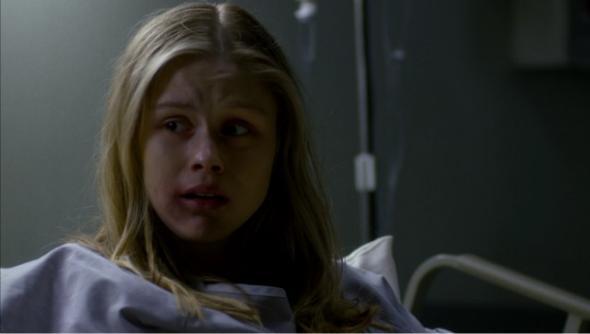In a way, Netflix’s Jessica Jones is one long commentary on rape survival. The 13-episode series follows the self-reliant, deeply troubled titular semi-superhero as she grapples with traumatic memories of her repeated assaults and their aftermath. Jones drinks heavily to dull her flashbacks and, like so many rape survivors, struggles with the nagging notion that maybe, just maybe, she was partly to blame.
The rapist in this story is Killgrave, a slick sociopath with the ability to control the minds, desires, and actions of anyone who crosses his path. In a piece titled “The Villain in Jessica Jones Is the Most Terrifying Bad Guy on Television,” Slate’s Willa Paskin called Killgrave an “adult bogeyman” and a “walking consent metaphor”—whether he’s coercing his victims into sex, murder, or something banal and humiliating, he invades their innermost selves and makes them look like willing participants. For Jones and Killgrave’s latest victim, college track star Hope Schlottman, Killgrave’s puppeteering meant rape, among other violent indignities.
By episode six (spoiler alert!), Schlottman is in prison for killing her parents at Killgrave’s command. She’s also pregnant, and ready to do just about anything to get rid of the aftermath of Killgrave’s assault. Jones finds Schlottman laid up in the prison hospital after she’d paid a fellow inmate to beat her up, hoping to induce a miscarriage. When Jones suggests Schlottman wait until a doctor can provide a clinical abortion, Schlottman refuses. “Every second it’s there, I get raped again and again,” she says.
This year’s slate of Republican presidential candidates is crowded with men who wouldn’t give Schlottman’s case a second thought. In today’s increasingly conservative GOP, it’s not enough for a candidate to decry abortion as baby-murder and push for laws that block women’s access to reproductive care. They must also hold the line against exceptions that would allow abortions in cases of rape and incest. Marco Rubio, for one, even doubts there’d ever be a justifiable reason for a doctor to perform an abortion to save the life of a pregnant woman.
Schlottman’s pleas testify to the injustice of abortion politics that don’t include exceptions for rape, incest, and women’s safety. Politicians who would force a woman to carry to term a fetus created by assault are inflicting yet another violation on a survivor who’s already had her desires trampled. Part of Schlottman’s reason for wanting her pregnancy over with now is that the resulting baby would be the spawn of a genuine supernatural devil-being. But for actual survivors of sexual violence, memories of a perpetrator without Killgrave’s evil superpowers can be equally painful as Schlottman’s. A resulting pregnancy can be an equally distressing reminder of that trauma—to say nothing of the sadism of forcing a rape victim to endure the excruciating, sometimes days-long ordeal of labor and delivery.
In the Jessica Jones episode, Jones tells Schlottman that her commissioned attack was more likely to kill her than terminate her pregnancy. “It was worth the risk,” Schlottman says. “It’ll be worth the next risk. Whatever it takes.” If women—especially rape survivors—can’t access abortion services, we’ll see more devastating effects of home or black-market abortions, not fewer abortions or safer women. Politicians should be concerned with punishing rapists, not their victims.
